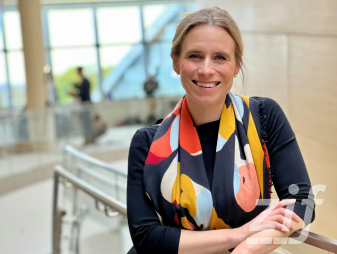Alice Wilhelmi
Human Security Adviser
Organisation: NATO, Office of the NATO Secretary General, Human Security Unit
Previous stations
- Several years working in the field of peace and security for various organizations (e.g. DCAF - Geneva Centre for Security Sector Governance, Amnesty International, Human Rights Watch)
- 2017-2021: United Nations, DPO/Office of the Under-Secretary-General, New York
- 2022-2023: NATO, Building Integrity Officer
- Since March 2023: NATO, Human Security Adviser
In my position as Human Security Adviser, I am currently working...
on a wide range of topics, but in particular on the question of how the human security approach can be integrated into NATO's core tasks. The concept of human security is based on a holistic concept of security, which was largely shaped by the United Nations. In contrast to national or state security, it focuses on people and human dignity. A human security approach allows a holistic analysis of threats to the security, rights and well-being of people. At NATO, human security is also closely linked to the Women, Peace and Security agenda.
What motivates you to work for NATO?
Human security is a crucial aspect of NATO operations, missions and activities as it puts the perspective of the civilian population at the center. As a result, human security increases the effectiveness, efficiency and legitimacy of NATO operations. The top priority is to protect the civilian population in conflict and crisis situations. What does NATO need to do to ensure the safety and well-being of civilians? The idea that I and my team can make a contribution to better protection of the civilian population is very motivating.
What is special about working as a civilian expert for NATO and what advice would you give to future colleagues?
NATO is a political-military alliance; cooperation between military and civilian structures is part of everyday life. As with any international organization, there is of course also the intercultural factor. After all, NATO has 32 member states, all of which provide personnel. This combination makes the working environment exciting. I learn a lot about NATO as well as from my colleagues. Therefore: a large portion of open-mindedness, mental flexibility and the ability to listen well - that's what I would recommend to future colleagues.
“I am convinced that work in the field of human security strengthens NATO's legitimacy. It promotes solidarity and cohesion within the Alliance. It is motivating to be part of an international team that is committed to these shared values.”
© Foto: Nicoletta Serrenti
